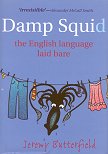This is yet another survey of the wonderful idiosyncrasies of the English language, covering spelling, grammar, metaphors, stock phrases, idioms, context, change, and style.
What distinguishes this account is that the discussion revolves around the two billion word Oxford corpus: a massive resource of the English language, with sources from Britain, Ireland, the US, Australia, New Zealand, Canada, South Africa, the Caribbean, India, and East Asia. This allows linguists and lexicographers to find out how words are really used, both in speech and in writing, across the world, and not just how they are used in "literary" works. This provides some interesting insights, particularly into word change, and errors (such as the one in the title, which is apparently sufficiently common to be noted, although I had never come across it before).
One particularly important point is that the corpus enables words to be examined in context, so that it is possible to examine how words collocate: which words tend to appear together. For example, one might think that quirky and eccentric are synonymous and hence interchangeable, but examination of the corpus shows that eccentric tends to be applied to people ("an eccentric millionaire/professor/..."), whereas quirky tends to be applied to behaviours and characteristics ("quirky comedy/humour/..."). Little things like this can make the language sound more or less natural, and are the bane of language learners.
Words can have many meanings (can be polysemous). The classic example is bank: the edge of a river, or where you keep you money. Context helps here, too, to disambiguate the meanings. A usage of bank might occur with words like river, water, or money, manager. Given that context, you can tell the meaning. [I now have a strong temptation to write things like "I went down to the bank by the river's edge, and withdrew some money from the cash machine there."] Some words have only one meaning (are monosemous); these are often technical words. Butterfield gives the example of lemma (here meaning the base form, or "headword" that you would look up in a dictionary, behind different forms of a word: so drive, driving, driven, drove have the lemma drive) as a monosemous word [p70]. However, sometimes a technical word in one area can be used as a technical term in another: mathematicians have a different (technical) meaning for it; biologists have a third.
There's lots to enjoy and discover in here, even if you've read books on similar topics before. A little of it rehashes well-known material, but the anchoring in the corpus gives a solid grounding to much that would be mere speculation in other accounts.
